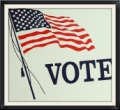Campus Card Business Forecast
2006
Published by
Robert C. Huber, CMC, CPCM
Vendor Independent
Campus Card Business Consultants
Campus Card Business Forecast
2006
Prediction #1 - Campus Merchants Expand Revenue Opportunities
In just four years (2010), 50% of all campus card systems will include at least several off-campus merchant applications; Off-campus "marketing partners" will surpass all banking relationships within three years, secondly only to "self-op" management of off-campus merchant applications.
Prediction #2 - IP Reader Technology … Finally!
Individual "IP Addressable" card readers will compose 90% of card system vendor reader sales within two years, as institutions move away from traditional dedicated networks to connect readers to host systems via “IP Native” hardware.
Prediction #3 - Web Deposits Gain Momentum
Demand for increased customer services, more restrictive budgets, and higher debit account deposits will drive the acquisition of third-party web tools to accept financial deposits via the Internet by both students and their families, and therefore transitioning the traditional card office into a 24/7 "virtual" Customer Service Center.
Prediction #4 - Shared Hosting Increases
Although the majority of schools in the past have dedicated one card system host per campus, there will be an increased variety of host options and configurations (e.g. satellite/regional campus sharing, neighboring institution/consortium sharing, business/institution sharing, centralized vendor host leasing, etc.).
Prediction #5 - Pay-for-Print Controls Costs
Increased attention to printing consumable costs will eliminate free printing, necessitate central control and management of computer labs, and integration of Pay-for-Print subsystems linked (debited) to the campus card system.
Prediction #6 - Smart Cards Miss An Opportunity
Smart cards have lost their "window of opportunity" for acceptance in the U.S. due to fledgling promises and failed pilots over the past 20 years, and will be surpassed by more customer friendly technologies (i.e. magnetic stripes, biometrics, etc.).
Prediction #7 - Magnetic Stripe Still Reigns
Nearly 90% of campus cards will still retain a magnetic stripe in the next five years, while bar codes will quickly disappear off campus cards.
Prediction #8 - Proximity As A Secondary Technology
The family of proximity technologies will continue to "seduce" many campuses with their single application and often expensive proprietary technology (i.e. usually only in security applications), and will compose the secondary technology on many "combi" campus cards.
Prediction #9 - Vendor Partnerships Expand
Vendors in the campus card industry will form more alliances with each other for expertise, integration, and demand by expansive All-Campus Card programs, both on and off campus.
Prediction #10 - Electronic Door Access Menu Expands
If industry security and communication issues are rectified, "wireless" door access readers (on-line) will eventually secure 25% of the market, while off-line door access readers (standalone) will retain 50%, and the remaining 25% will utilize on‑line communications (wired).
► View ● Print ● Download ● Share
RHA_2018 Campus Card Business Forecast.p[...]
Adobe Acrobat document [69.7 KB]
► View ● Print ● Download ● Share
RHA_FAST FACTS.pdf
Adobe Acrobat document [829.5 KB]
Publisher
Robert C. Huber, CMC, CPCM, President & Senior Consultant of Robert Huber Associates, is a "Vendor Independent" Campus Card Business Consultant, certified business and marketing consultant, card technology expert, implementation strategist, Hall of Fame recipient, college business instructor, publisher of the "Campus Card Business Forecast", author, entrepreneur, visionary, trusted media resource and frequent speaker at business conferences throughout North America.
Since developing the "All-Campus Card" concept in 1985, he has implemented over 200 debit card, door and parking access control, meal plan, food production, and point-of-sale systems at over 200 colleges, universities, hospitals and corporations.
Innovations
Robert C. Huber, CMC, CPCM, has been an industry pioneer, historian, forecaster, media resource, and campus card industry leader since 1982 and directly responsible for many campus card industry innovations:
1982 - Introduction of the first campus cards with High Coercivity magnetic stripes (non-eraseable).
1985 - Development of the "All-Campus Card" concept at Duke University.
1986 - Development and issuance of more durable "4-Year Campus Cards".
1990 - Installation of the first "smart card" credentials and systems on three college campuses (simultaneously).
Vendor Independent
Campus Card Business Consultants























































































